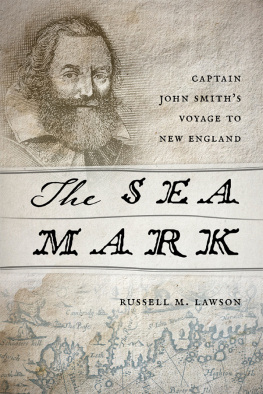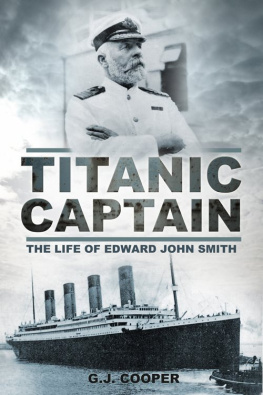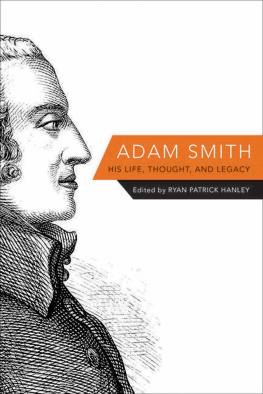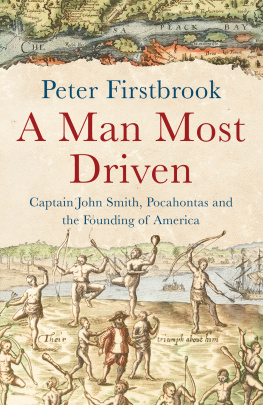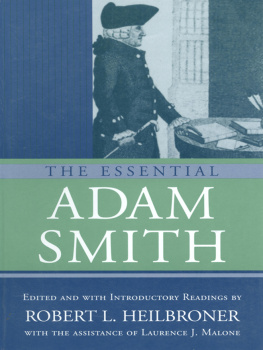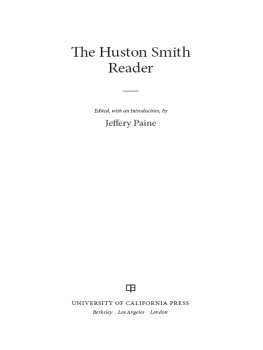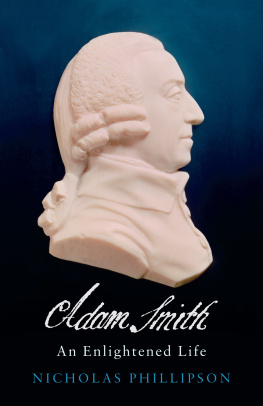CAPTAIN JOHN SMITH
The Omohundro Institute of Early American History and Culture is sponsored jointly by the College of William and Mary and the Colonial Williamsburg Foundation.
1988 The University of North Carolina Press
All rights reserved
Manufactured in the United States of America
Library of Congress Cataloging-in-Publication Data
Smith, John, 15801631.
[Selections. 1988]
Captain John Smith: a select edition of his writings / edited by
Karen Ordahl Kupperman.
p. cm.
Includes index.
ISBN-13: 978-0-8078-1778-0 (cloth: alk. paper)
ISBN-13: 978-0-8078-4208-9 (pbk.: alk. paper)
1. VirginiaHistoryColonial period, ca. 1600-1775Collected works. 2. New EnglandHistoryColonial period, ca. 1600-1775Collected works. 3. AmericaDiscovery and explorationEnglishCollected works. I. Kupperman, Karen Ordahl, 1939II. Institute of Early American History and Culture
(Williamsburg, Va.) III. Title.
F229.S592 1988 87-21485
975.502dc19 CIP
The paper in this book meets the guidelines for permanence and durability of the Committee on Production Guidelines for Book Longevity of the Council on Library Resources.
10 09 08 07 10 9 8 7
THIS BOOK WAS DIGITALLY PRINTED.
Preface
John Smith deserves to be read. All those familiar with early American history think we know what Smith thought; his life has been reduced to a series of familiar catchphrases. His work is therefore slighted in favor of that of his reputedly more thoughtful contemporaries. A pleasant surprise is in store for anyone who picks up Captain Smith and reads him in some depth. His treatment of Virginias founding and the process of settling among the Indians in an alien land is the best we have. He alone attempted to portray the complexity of Indian life and of the many-layered relationship between Americans and colonists, even looking beyond the confluence of short-range goals on both sides that led to initial trading relationships.
Smith has often been seen as a braggart, who wrote to magnify his own role in colonial affairs beyond all recognition. He dared to compare himself to Julius Caesar, who wrote his owne Commentaries, holding it no lesse honour to write, than fight (Sea Grammar, sig. A2 r ; Barbour edition, III, 47). It is true that Smith reworked the same material in several books, and he became more insistent on the importance of his own role with each retelling, but each new work was also a milestone in Smiths continuing effort to work out a consistent philosophy of colonization. His final book, Advertisements for the Unexperienced Planters of New England, or Any Where (1631), presented a thoughtful and coherent picture of the future British Empire, the only such plan written at the time by an actor. John Smith richly repays time spent reading his works; his writing illuminates the history of New England as well as Virginia.
One of the personal benefits of preparing this edition of John Smiths writings has been the opportunity to work with the Institute of Early American History and Culture. Nicholas Canny, Philip Morgan, Thad Tate, and Alden Vaughan all gave me the benefit of their knowledge of Smith and the context in which he worked. Cynthia Carter Ayres has strengthened the manuscript in many ways. I was always conscious of following in the footsteps of great scholars. The text for this edition is taken from Philip L. Barbours three-volume edition, The Complete Works of Captain John Smith (15801631), published for the Institute by the University of North Carolina Press in 1986. Barbour knew Smith and his life better than anyone else. The edition was completed after his death by Alison and David Quinn, who command the field of early exploration and colonization, and who are the models for all editors of historical documents.
Contents
Illustrations

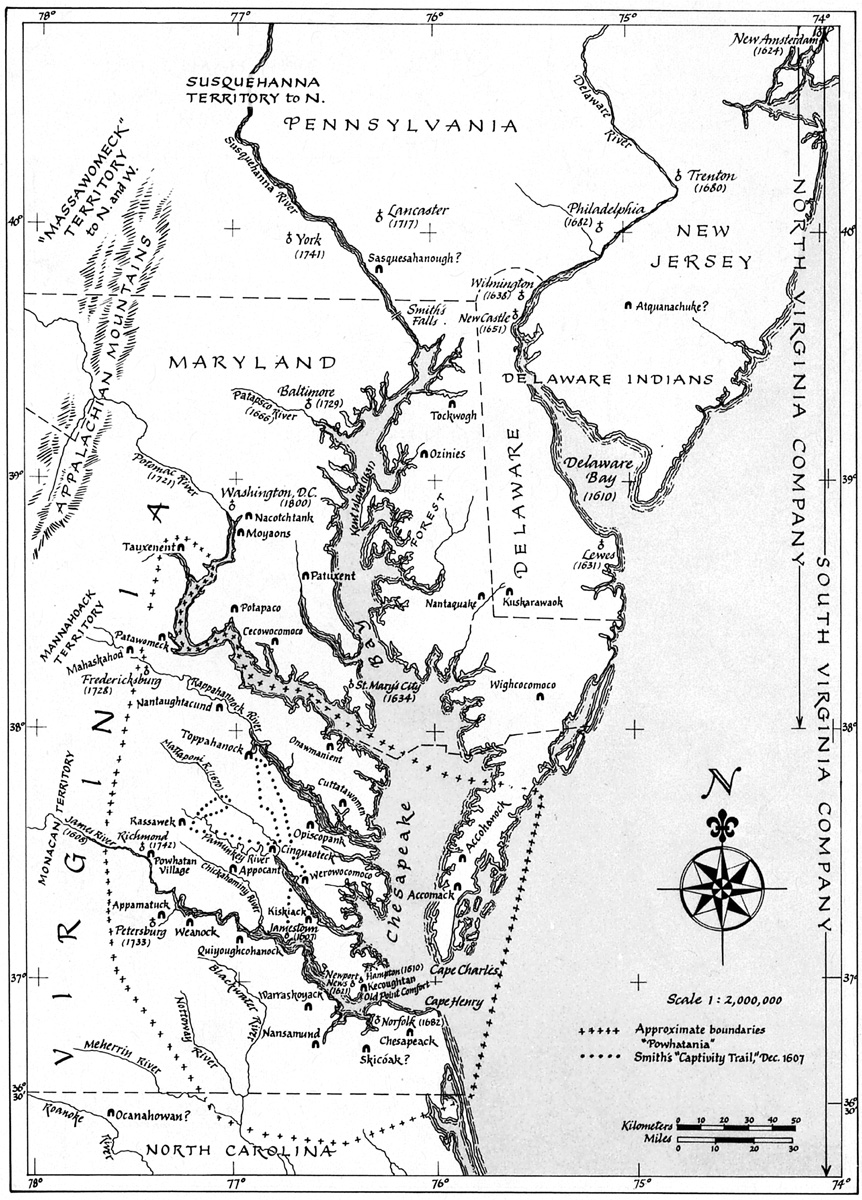

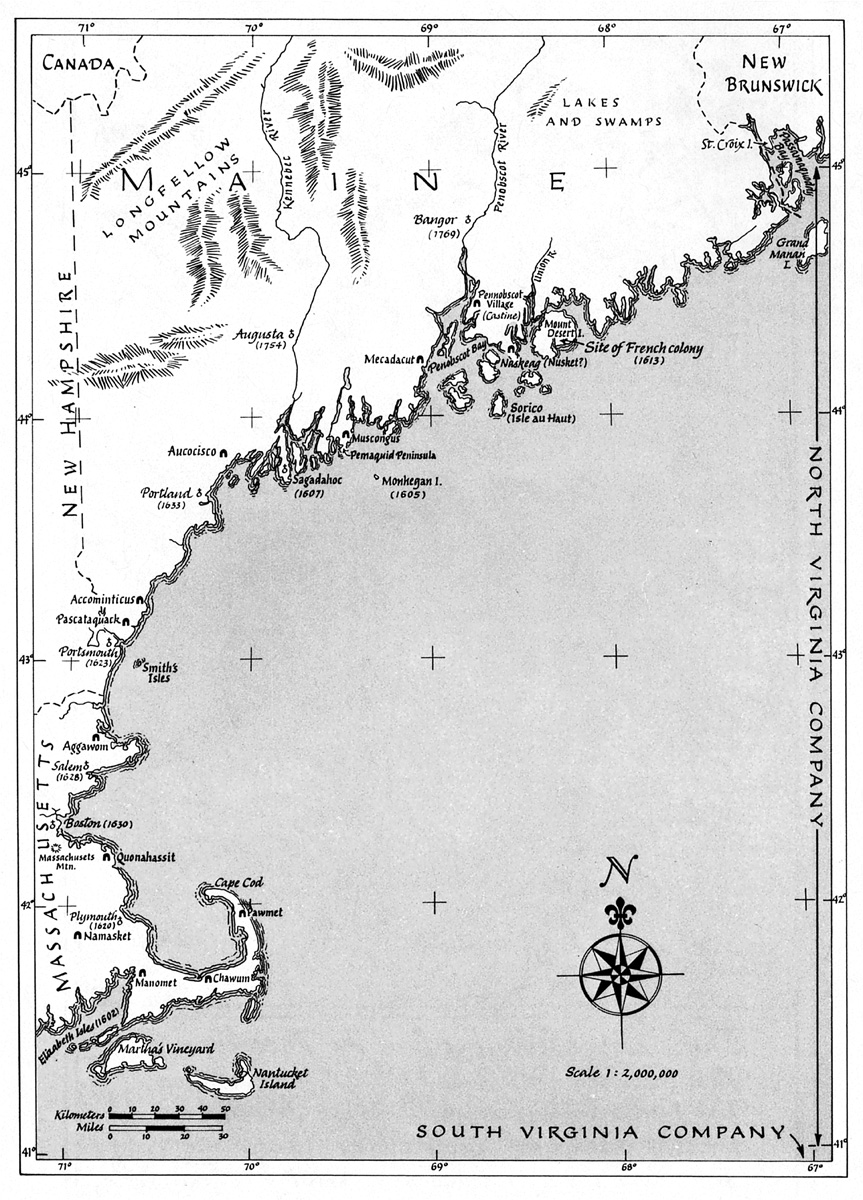
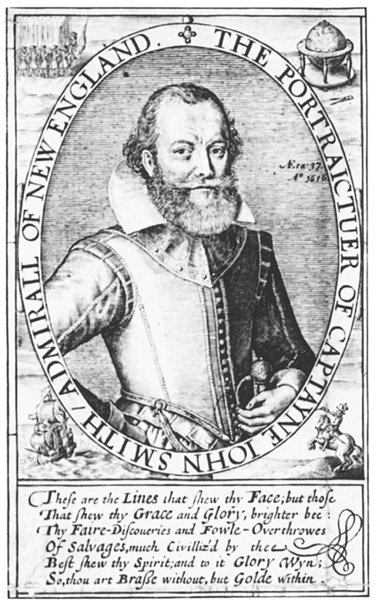
Capt. John Smith. Courtesy of the Houghton Library, Harvard University.
Introduction
No one can read Capt. John Smith and remain neutral about the man. Most historical characters lose over the centuries their capacity to inspire outrage or loyalty, and historians can calmly debate the wisdom of their policies and the motives behind them. Smiths case is different; he continues to live not only as an actor and a writer, but also as a personality. Historians hody debate whether he was right about what the Virginia Company should or should not have been doing; but behind the heated academic debate, scholars also clearly like or scorn Smith. After reading his work, we feel we know him as a human being. Though most seventeenth-century people seem foreign, the 350 years that separate us from Smith seem to evaporate. He is a man one can understand; his many disappointments come across the page as fresh wounds. Despite his boastful and aggressive manner, he constantly revealed his vulnerability to slights and reverses. Almost against our will, we may find ourselves cheering his successes and feeling his pain.
John Smiths life was filled with irony and contradiction. He was a self-made man, but he always depended on the patronage of noble men and women. He claimed to have made his own fate, yet nothing would have been possible for him without that patronage. His ability to attract the eye of those with money and favors to bestow began early in his life. Born in 1580 in Lincolnshire, the son of a substantial farmer, he received a grammar school education, partly because the local leading man, Peregrine Bertie, Lord Willoughby, thought he showed promise. This education, along with the habits of reading that it instilled, was an important precondition for the life John Smith was to lead.
Most English families, even those who could afford servants of their own, sent their children off to work as servants or apprentices at about the age of fourteen or fifteen. This form of education ensured that children were still under family government but avoided the parent-child tensions of adolescence. Smith was apprenticed to a merchant in the nearby seaport of Kings Lynn when he was fifteen. He found the life of a merchant too dull and left it after a few months to seek adventure; the recent deaths of his parents had released him from parental control.


